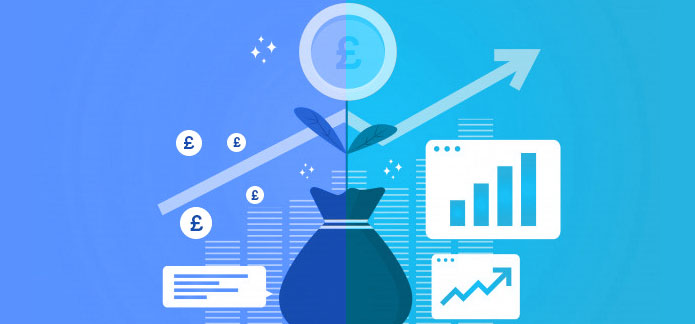
One of the best ways to reduce your tax bill is to claim accurate business expenses. Not all the expenses incurred by the business shall be an allowable expense for the purpose of taxation, therefore, it becomes important to understand which costs are allowable and which are not. Only allowable business expenses can be claimed as deduction from profits of the business, hence reducing the amount we need to pay taxes on. To claim the right amount of expenses, it is important to segregate:
- Actual and simplified expenses
- Business and personal expenses
- Capital and revenue expenditure
- Fully allowable and partially allowable expenses
Actual and simplified expenses
Actual expenses are the costs incurred for business purposes and can be identified separately, unlike the simplified expenses which can be claimed at a flat rate instead of getting stuck in lengthy calculations for finding out the exact expenditure. To read more about a simplified expense scheme click here
Business expenses & personal expenses

Expenses may be incurred for business or personal purposes. Only those expenses which can be related to the business are allowed as a deductible expenses. No private expense incurred out of business funds can be claimed as deductible. It is hereby advised to maintain a separate bank account for business so that there isn’t any confusion while claiming expenses at the time of preparing the tax return.
Capital expenditure & Revenue Expenditure

Capital expenditure (or CAPEX) is the expenditure that a company incurs on purchasing, maintaining, and improving its long-term assets, generally fixed and non-consumable in nature, such as buildings, laptops, vehicles, equipment, land, etc.
Revenue expenditure means expenses incurred while conducting the operations of the business. Some revenue expenditure examples are the cost of purchase of stock, freight charges, carriage charges, wages, etc.
Revenue expenditures are fully allowable in one go, whereas, CAPEX may be claimed by way of capital allowances.
Fully allowable expenses
- Costs of Sales refer to the direct cost of producing goods or providing services. It comprises of cost of goods held for resale, cost of raw material, etc. It can be calculated using the following formula:
Cost of sales = Opening stock + purchases - closing stock - Car, van, and travel expenses - Expenses like vehicle insurance, repairs, fuel, parking charges, vehicle licence fees, etc. that are directly related to using a car, van, or other vehicles for the business purpose are fully allowable for a business expense. Travel expenses incurred for business purposes, like accommodation, meals, transportation, etc. are allowable as a business expenses.
However, any payment made for breach of the law, for instance, speeding fines, parking fines, etc. shall not be deductible. - Rent, rates, power, and business insurance cost - Expenses incurred for use of a business premise like rent for the premise, utility bills, payment for security, etc. are fully allowable business expenses. However, if you work from home then you can claim proportional working from home expenses with respect to heating, insurance, lighting, rent, interest on a loan, cleaning, etc.
- Wages, salaries and other staff costs - The payments made to people who work for the business, whether paid in the form of salaries, wages, bonus, pension, etc. shall be allowable as a business expense and shall be fully deductible.
- Repairs and maintenance of the property - Any expense incurred for repairing or maintaining the business premise like painting, fumigating, etc. shall be allowed as a deductible expense.
- Accountancy, legal, and other professional fees - Any payment made to hire the services of an accountant, solicitor, engineer or any other professional shall be considered an allowable business expense.
- Financial charges - Business loan interests, leasing payment, hire purchase interest, overdraft, and credit card charges can be claimed as a business cost. However, any repayment of the loan, overdraft, or finance arrangements shall not be allowed as a deductible business expense.
- Telephone, fax, internet charges - Telephone, fax, the internet used solely for the business purpose shall be a deductible expense. However, if you work from home then these expenses need to be proportionately divided for personal and business use.
- Other business expenses -
- Clothing expenses - The expenses for everyday clothing cannot be claimed as a deductible expense. However, the cost of uniform, protective clothing, costumes for entertainers or actors can be claimed as an allowable business expense.
- Marketing - The cost of advertising in newspapers, magazines, or directories, goods are given away as free samples, website costs, etc. can be claimed as an allowable business expense.
- Entertainment expenses - Amount spent on entertaining customers, clients, and suppliers cannot be claimed as a business expense. Also, event hospitality shall not be an allowable cost.
- Professional Subscription cost - Fees for subscribing to trade or professional journals and membership fees paid to a trade body or professional organisation shall be an allowable business expense. The cost of payments to political parties, gym membership fees, and charity shall not be allowed as a deductible business expense. However, charity sponsorship payments shall be an allowable business expense as your company gets something related to the business in return.
- Training cost - The cost of business-related training courses which can help in improving skills and knowledge that can be used for business shall be an allowable business cost. But the cost of training courses that help in commencing a new business or expansion of existing business shall not be a deductible expense.
Partly allowable expenses
- The annual event - In case the business spends an amount of £150 per employee on one or more annual events like Christmas dinner etc. for all its employees than a tax deduction up to £150 per employee per year shall be allowable as a deduction. Any amount spent over and above this limit shall be taxable.
- Suggestion awards - The employees may be rewarded by the employer for the suggestions the former provide, which prove beneficial to the business. It may be an encouragement award or a financial benefit award. The encouragement awards up to £25 and financial benefit awards up to £5,000 (the amount being greater of 50% of the money the suggestion is expected to make or save your business the year after you put it into action or 10% of the money you expect it to make or save your business in the first 5 years after you put it into action.) shall not be required to be reported and no tax needs to be paid on the same. Any amount given as award above this amount shall be taxable.
Record keeping for expenses

The records for all business expenses need to be maintained. Such records need to be kept for at least 5 years from the end of the tax year to which they relate. HMRC may check these records to ensure that the taxpayer is claiming the expenses correctly.
Conclusion
In order to reduce tax bills, it’s important to claim the right amount of taxes. The golden rule for claiming expenses is- all the expenses incurred wholly and exclusively for business can be claimed as an allowable expense. To ensure the right claim it’s important to maintain proper and exact records of expenses detailing the type, amount, and date of incurring the expenditure. The records may be maintained in physical books, spreadsheets or accounting software depending upon the need of your business. Click here to view our guide on how small businesses can do bookkeeping themselves.












